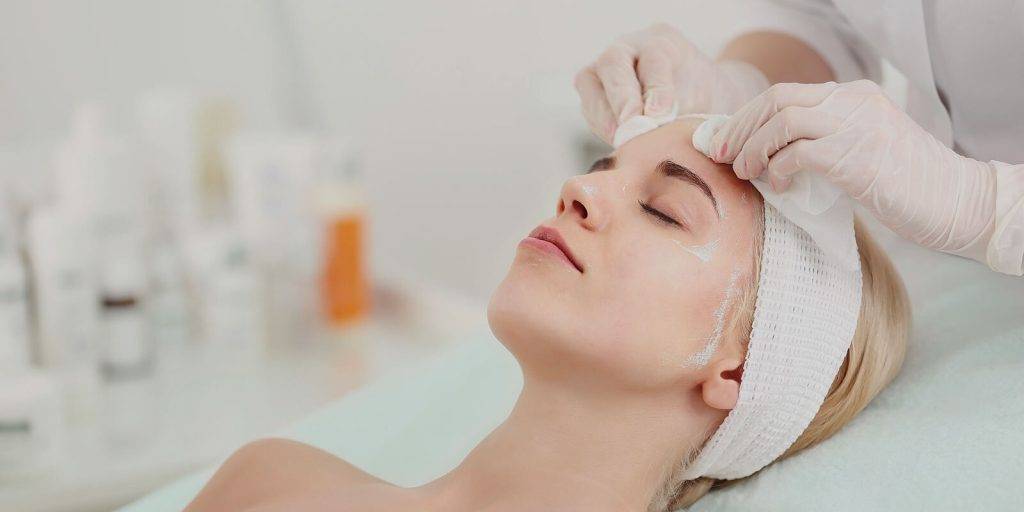As we age, our skin starts to lose its elasticity, firmness, and radiance, leading to fine lines, wrinkles, and other signs of aging. While this is a natural process, there are ways to slow it down and even reverse some of the damage already occurring. One such way is using skin care peptides or peptide therapy for anti-aging. This blog will explore how skin care peptides help with anti-aging.
What are Peptides in Skincare?
Before we talk about peptides, it is important to first talk about amino acids and what they are. Peptides are strings of amino acids, the building blocks that make up specific proteins in your body (these proteins also include collagen). Without enough production of these proteins, your skin will start to look frail and have wrinkles; your nails will become brittle and weak.
That’s when peptides come to function. Peptides are the building blocks for producing new collagen and elastin fibers that further contribute to healthy, radiant, and glowing skin.
Peptides, also termed polypeptides, occur naturally in your skin. However, they can be incorporated as a part of your daily skincare routine or as anti-aging peptide therapy in Cincinnati, too, just for those added benefits.

How Do Peptides Work For Anti-aging?
1. Promotes Skin Barrier
Your skin barrier protects your skin from harmful UV rays, pollution, toxins, and bacteria. However, skin barriers can be damaged with time due to over-exfoliation, pollution, smoke, and several other factors. A compromised skin barrier can result in several skin issues like dryness, itching, inflammation, and sensitivity.
Peptides help repair the skin barrier. One way that it helps repair it is by reinforcing the skin barrier and preventing moisture loss. Certain studies prove that peptides can also help improve barrier function and reduce inflammation, making them a valuable ingredient in repairing the skin barrier.
2. Reduces Fine Lines and Wrinkles
Peptides help reduce the appearance of wrinkles and fine lines by stimulating the production of collagen in the skin. As you age, collagen production in the body reduces, contributing to the formation of wrinkles, thus aging. Peptides stimulate the cells to produce more collagen. Collagen plumps the lips and skin. And when the skin looks healthy and plump, the wrinkles reduce. And when wrinkles reduce, anti-aging begins.
3. Improve Skin Texture and Tone
Peptides are also responsible for forming elastin fibers (a type of protein) and collagen needed by your skin for enhancing skin firmness and elasticity. Peptides can make your skin look firm, improve texture, and reduce sagging skin.
It does that by increasing cell turnover and promoting the production of new skin cells, promoting skin cell turnover and enhancing skin hydration. Collagen and elastin are crucial proteins for maintaining skin elasticity and firmness. Collagen provides structural support to your skin, while elastin allows your skin to stretch and snap back into its place.
Incorporating peptides into your skincare routine can effectively achieve smoother, firmer, and more radiant-looking skin.
How to Incorporate Peptides in Your Skincare Routine?
You can use topical peptides as a part of your skincare routine. The incorporation of these products is easy. Here are some expert-recommended tips when it comes to using peptides:
1. Leave-on products
According to skincare professionals, it is better to opt for leave-on products such as serums or moisturizers to get the best peptide benefits. Leave-on products allow the peptides to absorb into the skin. Peptide-infused cleaners are not useful as they can be rinsed off and don’t allow complete absorption.
2. Read Labels
Make sure you look at the ingredient list to confirm the presence of peptides. Look for the words that end with peptide and make sure the peptide ingredients are written close to the beginning of the list.
3. Mixing Ingredients
Be mindful of the ingredients you use with peptides. Peptides generally work well with vitamin C, hyaluronic acid, and squalene. However, retinoids or AHAs combined with peptides are surely a big no.
It is also important to look at the formulations to better understand how the product will perform and how well it will penetrate the skin barrier. However, that can be tricky to know about. Therefore, it is better to consult your dermatologist for the best advice.
4. Peptide Therapy
Even though your body can produce peptides naturally, the product amount can significantly vary as you age. With age, the quality and number of peptides can decline significantly. Peptide therapy helps restore the number of peptides that stimulate cellular regrowth within the body.
Peptide therapy for anti-aging treatment can be significantly customized based on the patient’s requirements. Peptide therapy offers various benefits to the skin, including improved skin health, enhanced hydration, and increased skin elasticity by promoting collagen and elastin production. These effects can help combat the appearance of wrinkles and maintain skin firmness. Research has shown significant improvement in skin wrinkles after just two weeks of peptide therapy.

FAQS
Do Peptides Make You Look Younger?
Yes, peptides can help reduce the appearance of aging and make you look younger by stimulating collagen production, increasing skin hydration, improving skin texture and tone, and reducing the appearance of fine lines and wrinkles.
Are Peptides Safe in Skincare?
Peptides are a safe skincare ingredient for all skin types and tones.
Who Should Choose Peptides?
Everyone looking for healthy and plum skin should incorporate peptides in their skincare regimen.
Wrapping Up
Peptides are a pretty powerful anti-aging ingredient that can do wonders for your skin if used in the right way. If you are considering using peptides in your skincare routine or looking for anti-aging peptide therapy in Cincinnati, consult a dermatologist or skin care professional to determine the best peptides and products for your skin type and concerns.


